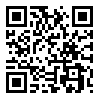مجله رویش روانشناسی از دادن گواهیهای کاغذی معذور است. لطفا تقاضا نکنید. همه گواهی ها در صفحه شخصی کاربران موجود است.
year 13, Issue 11 (Winter 2025 2025)
Rooyesh 2025, 13(11): 165-174 |
Back to browse issues page
Ethics code: IR.IAU.CTB.REC.1403.069
Download citation:
BibTeX | RIS | EndNote | Medlars | ProCite | Reference Manager | RefWorks
Send citation to:



BibTeX | RIS | EndNote | Medlars | ProCite | Reference Manager | RefWorks
Send citation to:
Hasanipour K, Nosrati K. (2025). The Effectiveness of Schema Therapy on Self-Blame and Cognitive Avoidance in People with Obsessive-Compulsive Disorder. Rooyesh. 13(11), 165-174.
URL: http://frooyesh.ir/article-1-5642-en.html
URL: http://frooyesh.ir/article-1-5642-en.html
1- M.A Student in General Psychology, Faculty of Psychology and Educational Sciences, Islamic Azad University, South Tehran Branch, Tehran, Iran.
2- Assistant Professor, Department of Psychology, Faculty of Psychology and Educational Sciences, Islamic Azad University, South Tehran Branch, Tehran, Iran. ,Nosrati.psk@gmail.com
2- Assistant Professor, Department of Psychology, Faculty of Psychology and Educational Sciences, Islamic Azad University, South Tehran Branch, Tehran, Iran. ,
Abstract: (1104 Views)
The present study was conducted to determine the effectiveness of schema therapy on self-blame and cognitive avoidance in individuals with obsessive-compulsive disorder. The research method was quasi-experimental with a pre-test-post-test design and a control group. The statistical population of the study was all women referring to neighborhood counseling centers in District 22 of Tehran in 1402, from which a sample of 30 women who scored high on the Obsessive-Compulsive Disorder Questionnaire (Y-BOCS, Yale-Brown, 1986) was selected through convenience sampling and randomly assigned to two groups (experimental group and control group) with 15 women in each group. First, both groups were assessed using the Self-Blame Scale (SBS, Gilbert et al., 2004) and the Cognitive Avoidance Scale (CAQ, Sexton and Dugas, 2008). Then the experimental group underwent the schema therapy intervention of Young and Klosko (2003) for 8 sessions. The collected data were analyzed using multivariate analysis of covariance tests. The results of the data analysis showed that by controlling the pre-test effect, there was a significant difference at the 0.05 level between the mean post-test of self-blame and cognitive avoidance in the two groups. Therefore, it can be concluded that schema therapy was effective in reducing self-blame and cognitive avoidance in people with obsessive-compulsive disorder.
Type of Article: Research |
Subject:
General Psychology
Received: 2024/09/6 | Accepted: 2024/12/24 | ePublished: 2025/01/29
Received: 2024/09/6 | Accepted: 2024/12/24 | ePublished: 2025/01/29
Send email to the article author
| Rights and permissions | |
 |
This work is licensed under a Creative Commons Attribution-NonCommercial 4.0 International License. |





